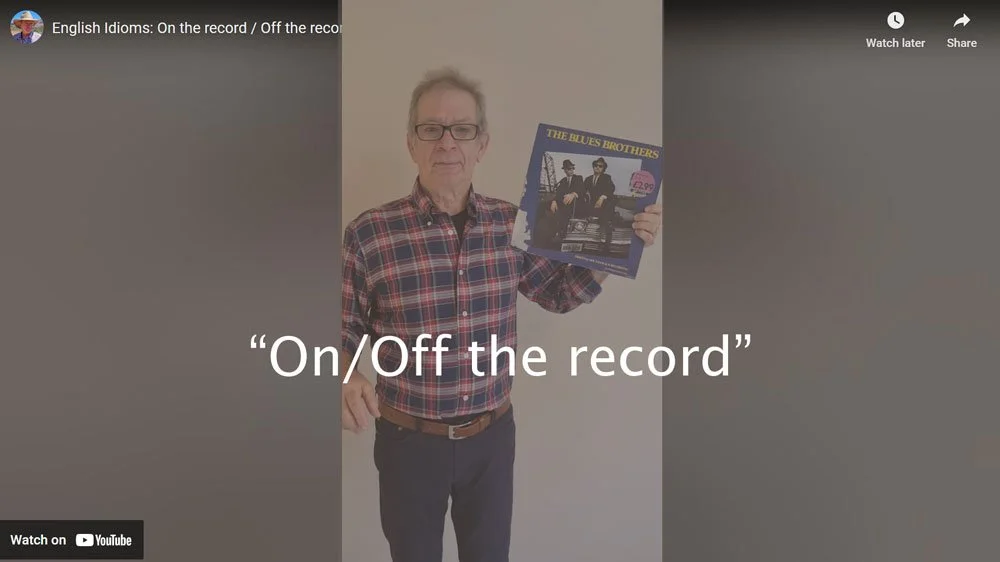On the record / Off the record
What is an idiom? An idiom is a phrase or expression. They are tricky to understand as their meanings do not directly relate to the individual words used in the phrase.
What do the English expressions "for the record", "on the record" and "off the record" mean?
The English idioms "for the record," "on the record," and "off the record" all relate to how information is documented or shared, but they have distinct meanings.
In these idioms "the record" refers to an official or formal documentation of information. For example, legal records, business meeting minutes, court transcripts or published news reports.
Definition:
On the Record means that something is being said publicly and can be officially quoted or documented. It indicates that the information is intended to be reported or acknowledged officially. It’s commonly used in journalism, interviews, or formal settings to indicate that a statement is meant to be part of the official record and can be attributed to the speaker.
Off the record means that something is said privately and is not meant to be publicly shared or officially recorded. When someone says something "off the record," they are telling the listener that the information is confidential and should not be quoted or used in any official way.
Origin:
All three idioms have their origins in formal and official contexts, particularly journalism, legal proceedings, and official documentation.
On the record originates from journalism and legal contexts where "the record" refers to official documentation, such as court transcripts or published news reports. When information is "on the record," it means that it is officially documented and can be quoted or reported. It became a common way to indicate that a statement is intended to be part of the public record and is open for public reporting or scrutiny.
Off the record comes from journalism and legal contexts. In these settings it refers to information that is not meant to be officially documented or publicly reported. It allows sources to share confidential or informal information that should not be attributed or published. The term has become widely used in various contexts to describe any information that is intended to remain private or confidential, not part of the official or public record.
Examples:
Over time, these phrases have evolved to become widely used.
Here are some examples of how these idioms are used in sentences:
News interview:
"Just to be clear, this statement is on the record: The company has no plans to close any of its branches."
"Off the record, I heard that the project might be delayed, but it's not confirmed yet."
Business context:
"I'll give you some information on the record: Our employees are all getting a 6% pay rise next month."
"Let me tell you this off the record: We’re considering some significant changes in the company, but we haven't finalized anything yet."
Political context:
"The mayor went on the record to confirm that the new policy will take effect on January 1st."
"The politician shared some details off the record about upcoming policy changes that are not yet public."




